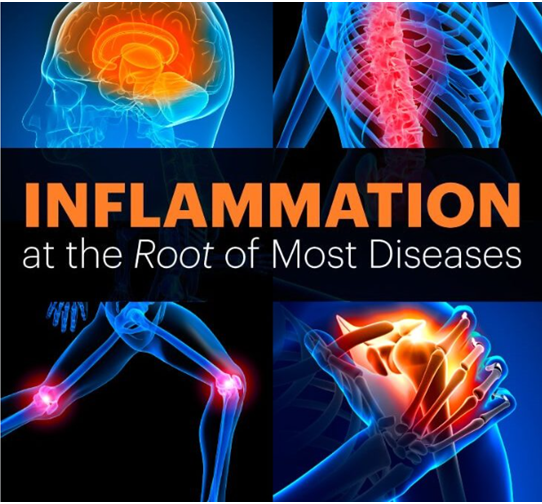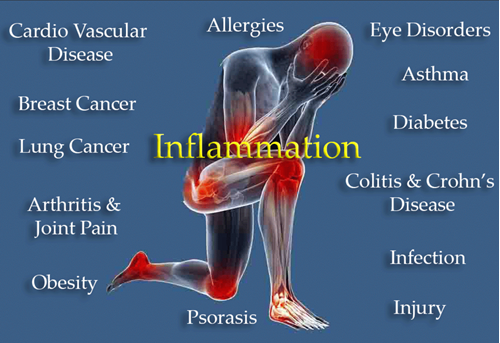Anti-Inflammation
The Science of Inflammation and Ways to Treat It
Inflammation is not always something to avoid. When we have joint pain or an injury, the body starts to heal itself through the process of inflammation. “People definitely associate it with something that’s negative”, says Wolfgang Marx who is an expert in nutritional psychiatry at Deakin University in Melbourne, Australia.After years of debate and research, scientist now know that inflammation can be considered good and bad. It can conquer infections, prevent cancer, allow injuries to recover, turn vaccines into disease protection and more. We would not survive without the different roles inflammation plays in the functioning of our bodies. “Without the appropriate type and appropriate level of inflammation, the immune system would not be capable of launching effective immunity against pathogens,” says Bali Pulendran, an immunologist at Stanford University in California.

As with many other things in life, there can be too much of a good thing. When inflammation persists at chronically elevated levels after an initial infection or injury has passed, it can lead to long-term illnesses such as heart disease, cancer, type 2 diabetes, depression and Alzheimer’s disease.
Inflammation can rage out of control, causing the immune system to attach the body’s own tissues, resulting in autoimmune conditions such as rheumatoid arthritis, psoriasis, multiple sclerosis and Crohn’s disease. Genetics and other factors affect the risks of these diseases, but research suggests that some of these conditions can start with an injury or illness that provokes inflammation which in turn cases damage. Excessive inflammation is one theory for the cause of long-haulers after having COVID-19.
In 1999 there were five or six known molecules called markers that were used as measures of inflammation in the body; today, there are thousands. Now,10,000 proteins can be measure in a drop of blood. So, we now know there are many subsets of inflammation and those are driven by different inflammatory markers. Studying how they are organized and connected gives us more information about the inflammatory response.
With the increase understanding about inflammation, as a single word, it’s meaningless because it has so many expressions. For each type of specialist in the medical field, the word describes a different set of molecules, molecular interactions, symptoms, and outcomes. The word inflammation is a word of convenience. We know what it means but there is so many definitions.

Research on inflammation illustrates how far the science of biology has come and how complicated it is but we don’t have a definition for inflammation. As researchers learn more about inflammation, they can begin to harness the good that it can do. New medications and more refined recommendations to address the many forms of inflammation may help prevent and treat more diseases. Additional evidence is growing to support behaviors like diet, sleep and mediation that can also address inflammation. As research progresses, consensus among scientists is that inflammation is something we need in the right amounts. It is not something we want to eliminate it is something we want to learn how to control.
 Add Row
Add Row  Add
Add 




Write A Comment